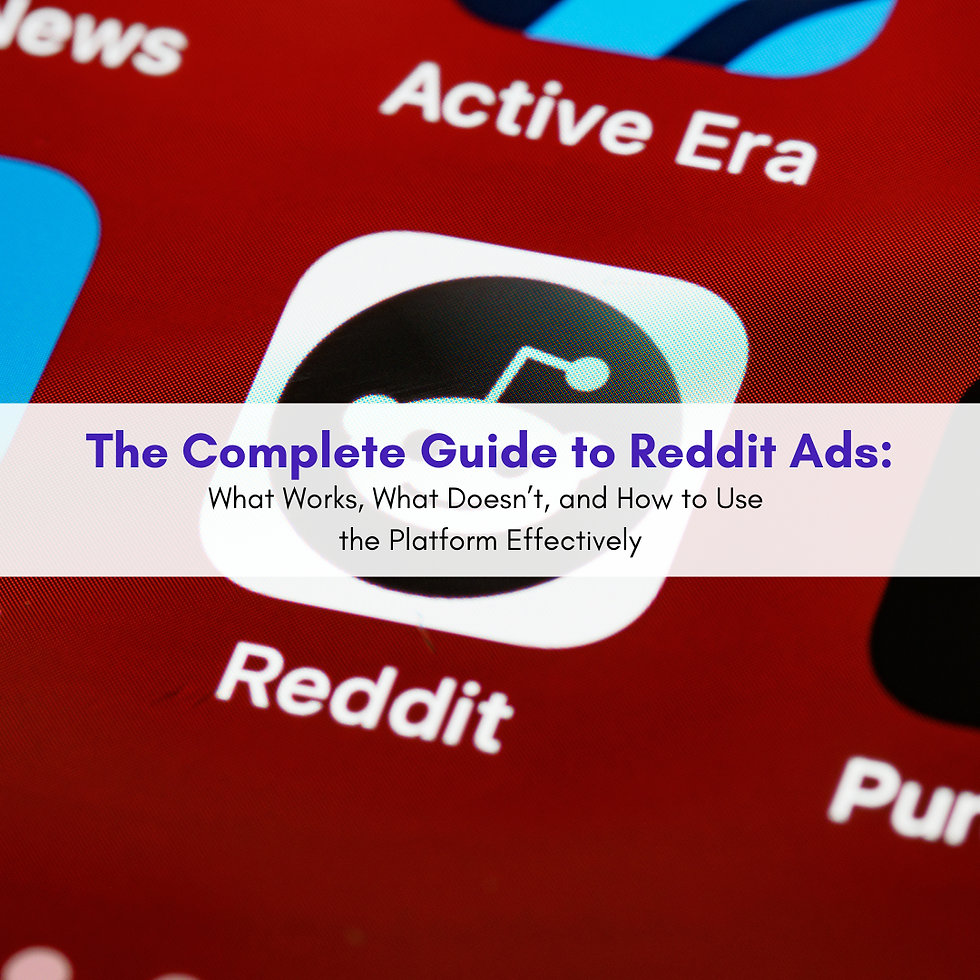Google Ads Search Max: The Next Evolution or Just DSAs with Even Less Control?
- 4M Digital

- Mar 5, 2025
- 3 min read
Updated: May 22, 2025

Google’s automation push isn’t slowing down, and Search Max looks like the next big move. But if you’re thinking, "This sounds a lot like Dynamic Search Ads (DSA) but with even less control", you’re not alone, I’m thinking the same!
From what we know so far, Search Max is essentially an AI-driven search campaign where Google handles search term matching, ad text optimisation, and URL selection for you. (But isn't that what PMax does?) It’s another step toward full automation, and honestly, it raises some big questions for advertisers. So, let’s break it down.
What is Google Ads Search Max?
While Google hasn’t officially announced it yet, reports suggest that Search Max campaigns are already appearing in some accounts. And from what’s been shared, it looks like a supercharged version of DSAs, but with even fewer levers to pull.
Here’s what seems to be happening under the hood:
✅ AI-driven ad text & URL selection - Google decides what to show users based on their search intent.
✅ Expanded match types & search term automation - Your ads could appear for a much wider range of queries.
✅ No keyword targeting as we know it - Search Max campaigns seem to function without traditional keyword input, just like DSAs.
So if you weren’t a fan of DSAs' lack of control, this might feel like another step in the wrong direction.
Why is Google Pushing Search Max Now?
Here’s my take: Google is rolling this out because non-eCommerce advertisers aren’t migrating to Performance Max.
We’ve already seen that PMax tends to perform well for eCommerce due to Shopping integrations, but when it comes to lead generation or service-based businesses, the results have been underwhelming at best. Many advertisers have tested PMax for lead gen, only to see low-quality traffic, poor conversion rates, and a lack of transparency.
So, what’s Google’s next move? Take the same level of automation and apply it to Search campaigns - this time, without positioning it under 'PMax'. Instead, it’s being framed as a new way to run Search campaigns more “efficiently”.
But let’s be honest - it’s a way to get more advertisers into fully automated, AI-led campaigns without them feeling like they’re being pushed into PMax.
What Does This Mean for Advertisers?
If Search Max rolls out fully, we’ll likely see:
🔹 Less control over search terms – Just like PMax, Google will decide what queries your ads show for. Advertisers who rely on tightly controlled keyword targeting could struggle with this.
🔹 A shift away from match types – We’ve already seen Broad Match getting smarter with AI. Search Max could take this even further, making match types less relevant (and potentially making Exact Match even weaker).
🔹 More automation = less transparency – If you’ve ever run PMax and thought, "I wish I could actually see what's happening," Search Max might bring similar frustrations.
🔹 Google handling more of your budget decisions – Since Google is doing the search term matching and ad serving, your role as an advertiser shifts even more toward budget oversight rather than hands-on campaign optimisation.
Should You Be Concerned?
'It depends' (as always) on how much control you like to have.
🚀 If you love automation and trust Google's AI to get results, this could be an easy way to simplify campaign management.
⚠️ If you want transparency, more control, and detailed targeting, this might be a headache. Just like with PMax, we’ll have to see how much insight Google gives advertisers
(spoiler: probably not a lot).
Final Thoughts: Test, But Don’t Panic (Yet!)
For now, Search Max is still in its early stages, so we don’t need to sound the alarm just yet. But if you see it in your account, here’s what I’d recommend:
✔️ Test it in a controlled way - Don’t put all your budget into Search Max without comparing it against a well-optimised standard Search campaign.
✔️ Monitor search term insights (if Google even gives us access).
✔️ Look out for quality issues – If PMax for lead gen was any indication, we’ll want to check whether these campaigns drive the right kind of traffic.
At the end of the day, Google is pushing Search Max because not everyone is buying into PMax. If this really is DSAs with even less control, advertisers will need to adapt fast or start looking at alternative strategies to maintain performance.
What do you think? Are you excited, skeptical, or dreading this update? Let’s chat!
4M Digital is a paid media consultancy specialising in Google Ads, Microsoft Ads, and Paid Social campaigns. With over 14 years of expertise, we help businesses unlock the full potential of their digital advertising strategies through tailored management, audits, and training.





Comments